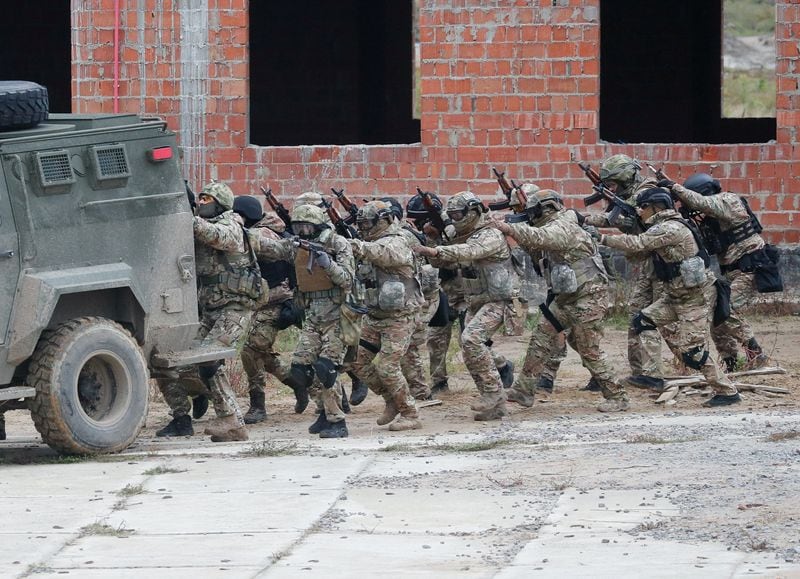
The dictator of Belarus warned that Poland's proposal to deploy a Western peace force in Ukraine could trigger World War III.
Alexander Lukashenko, who has allowed his ally Russia to use the territory of Belarus to launch an invasion of Ukraine, questioned the Polish offer of a peacekeeping mission made last week on Thursday, saying it “will mean World War III.”
“The situation is very serious and very tense,” he added.
Lukashenko's comment comes after Russian President Vladimir Putin warned at the beginning of the invasion of Ukraine that any foreign interference in Moscow's military action would trigger an immediate Russian response that would lead to “the consequences that have never been seen in its history.” A few days after the start of the invasion, Putin ordered the Russian nuclear forces to be placed under special combat regime.
At a meeting in the Belarusian capital, Minsk, Lukashenko said that Poles “are crazy” and considered that if people “want to have a country” they must “hold on to it with their teeth and endure”.
The Polish government has raised the possibility of NATO sending a peace mission to Ukraine, a line that the Alliance has in principle always ruled out insofar as it does not plan to send troops into Ukrainian territory to avoid a potential confrontation with Russia.

“This mission cannot be an unarmed mission. It must seek to provide humanitarian and peaceful aid to Ukraine,” Polish Deputy Prime Minister Jaroslaw Kaczynski said on March 15 in a meeting in Kiev with Ukrainian President Volodymyr Zelensky. “I think we need a NATO peace mission, or possibly a broader international structure, but a mission that is capable of defending itself and that is on Ukrainian territory, that is on Ukrainian territory with the agreement of the Ukrainian president and government, and that is not a defenseless mission,” he said.
On the other hand, the North Atlantic Treaty Organization (NATO) will equip its combat forces deployed on the eastern flank with protection against chemical, biological and even nuclear threats, announced Thursday by the alliance's secretary general, Jens Stoltenberg, in the framework of the leaders summit in Brussels.
The alliance members are “concerned” about the possible use of these weapons in Ukraine by Russia, and so they also agreed at a summit to “supply equipment to help Ukraine protect itself from such threats,” he said.
“Our chief military commander, General (Tod D.) Wolters has activated NATO's chemical, biological, radiological and nuclear defense elements,” said the Norwegian politician at the press conference following the summit.
“This includes screening equipment, medical equipment, decontamination training and crisis management,” he explained.
With information from AP and EuropaPress
Keep reading:
Últimas Noticias
Debanhi Escobar: they secured the motel where she was found lifeless in a cistern

The oldest person in the world died at the age of 119

Macabre find in CDMX: they left a body bagged and tied in a taxi
The eagles of America will face Manchester City in a duel of legends. Here are the details

Why is it good to bring dogs out to know the world when they are puppies




